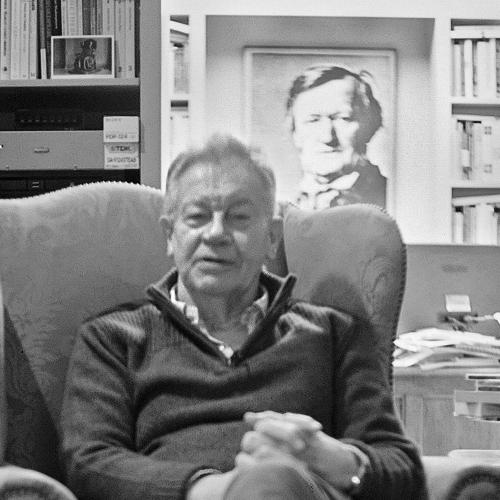COMPOSERS: Beethoven
LABELS: Nonesuch
WORKS: Piano Concertos
PERFORMER: Richard Goode (piano); Budapest Festival Orchestra/Iván Fischer
CATALOGUE NO: 7559 79928 3
Richard Goode, doyen of Beethoven pianists, is better known for solo recitals than as a concerto partner, and this is his first recording of any of the Beethoven concertos. It was a highly imaginative move on Nonesuch’s part to team him with Iván Fischer and the Budapest Festival Orchestra, one of the most individual groups on the current musical scene. Their playing is characterised by a lean sound, great rhythmic vitality and crisp accents, and they emanate a sense of joy in music and in being alive. Goode, usually, is a player who cultivates rich tone, gives thoughtful, unshowy readings of the great works, and is not a pianist with a high personal profile, either virtuosic or quirky or Claudio Arrau-profound. The combination of him and Iván Fischer was bound to be fascinating.
The results are, inevitably I suppose, mixed. To start with the Second Concerto since that, written in Beethoven’s late teens, is the first in order of composition and the least highly esteemed of the set: it works very well, the orchestra chamber-sized, the whole atmosphere that of friendly collaboration, no inflation, everything to scale. The First, from almost a decade later, is given a less grand orchestral introduction than it deserves, and the whole first movement lacks spacious grandeur – this despite being provided here with a cadenza of unprecedented length, idiomatic but mainly consisting, as they usually do, of endless scales and re-combinations of the main themes. I don’t know who wrote it – that information was not supplied with the advance review copy – but he should have restrained himself. The slow movement, one of Beethoven’s lions that purr, is inclined to gruffness.
The Third Concerto, which shares many features with the First, also shares, in this recording, the same virtues and failings. Goode plays many rapid quiet passages with so pearly a touch that he sounds as if he’d be happier playing French impressionist music; it seems to me hopelessly out of place in Beethoven, who never burbles or indulges in pure musical colour. The Fourth is better, indeed fine, though the opposition of piano and orchestra in the celebrated ‘Orpheus taming the Furies’ slow movement is a bit tame. The Fifth at last emerges on a grand scale, and very refreshingly; only in that last movement does Goode leave me feeling that he lacks sheer power of the kind his teacher Rudolf Serkin brought to it. So, interesting but not altogether satisfying. Michael Tanner
